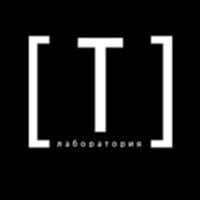
[Транслит]
Канал, дублирующий страницу журнала в фейсбуке, многим уже вероятно недоступную
Больше- Подписчики
- Просмотры постов
- ER - коэффициент вовлеченности
Загрузка данных...
Загрузка данных...
On 20th of June in Kombrai Bookstore (Didotou 34) the presentation of the new issue of TEFLON (summer-autumn 2024) magazine [...]
Третье заседание Русского теоретико-литературного кружка 8 июня 2024 года. Доклад Кети Чухров "Коллективная драматургия голоса" и его обсуждение.
Shared with Dropbox
Подкаст — павел арсеньев: литература и материальность голоса
Shared with Dropbox
On 18th of Mai, in Berlin the [Translit] editorial committee will take place, welcomed by Penka Rare Books & Archives. In addition to the historiography of Eastern European press in emigration and the digitization of archives today, there are also new experiences of emigration, including those of editorial teams, and their attempts to continue publishing in exile. But what, in fact, does exile mean today, when one can be in 24/7 electronic communication with “the other side”. This is something that emigration in previous eras didn’t have, which is why it was perhaps more site-specific and more oriented towards printed matter, this great organizer of the community. What changes in the cultural worker’s experience of exile the presence of zoom and therefore the possibility of zooming daily into contexts in which s.he for some reason cannot be physically present? While in the current emigration experience from Eastern Europe in general, the notion of “relocation” seems to be quite symptomatic for and indicative of attempts to de-dramatize and de-problematize the experience of emigration on the individual level (not actually to call it that), then for editorial team the questions of discursive relations with the “homeland” persist in new ethics of geo-positioning of speech, print and archive. From where are we speaking and for what audience? Are we temporally in exile (and soon will come back to reconstruct our country)? Or it is definitive, for the rest of our lives, and, therefore, we need to assimilate and to develop some discursive tactics of printing in and from exile? Where we prefer to keep the archives? This editorial committee of [Translit] is intended to report on and analyse different individual tactics of linguistic exile and the “functional schism” that occurred between those who stayed and those who left of the editorial board of [Translit] magazine (existed in S-Petersburg from 2005 to 2022, starting from 2023 published in Marseille). Participants of the talk — members of editorial board and/or authors of forthcoming issue «Printed matter in exile» Pavel Arsenev on geoposition of speech and media assimetry in contemporary emigration. Isabel Jacobs on Poplavsky, Bataille and exilic philosophies of friendship in the interwar period. Among the participants of the discussion will be Keti Chukhrov, the author of «The Global Congress of Post-prostitution Theory«, a dramatic poem written in English and staged at Steirische Herbst 2019, which will be published in the forthcoming [Translit] issue. Begining at 18.00, Halfsister space (Torgauer Str., 1) Event on facebook
https://www.facebook.com/events/365156686012667Shared with Dropbox
Les aut_rices de #4 [Translit]: printed matter in exile:Pavel Arsenev, Keti Tchoukhrov, Vera Martynov, Giulia Loi, Lev Hvostenko Pendant la présentation [...]
Ваш текущий тарифный план позволяет посмотреть аналитику только 5 каналов. Чтобы получить больше, выберите другой план.
